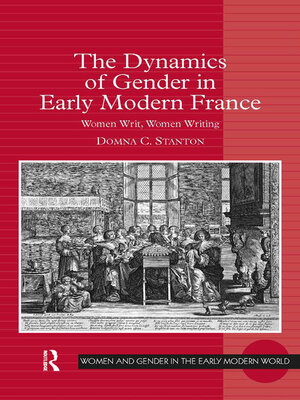The Dynamics of Gender in Early Modern France
ebook ∣ Women Writ, Women Writing · Women and Gender in the Early Modern World
By Domna C. Stanton

Sign up to save your library
With an OverDrive account, you can save your favorite libraries for at-a-glance information about availability. Find out more about OverDrive accounts.
Find this title in Libby, the library reading app by OverDrive.



Search for a digital library with this title
Title found at these libraries:
| Library Name | Distance |
|---|---|
| Loading... |
In its six case studies, The Dynamics of Gender in Early Modern France works out a model for (early modern) gender, which is articulated in the introduction. The book comprises essays on the construction of women: three in texts by male and three by female writers, including Racine, Fénelon, Poulain de la Barre, in the first part; La Guette, La Fayette and Sévigné, in the second. These studies thus also take up different genres: satire, tragedy and treatise; memoir, novella and letter-writing. Since gender is a relational construct, each chapter considers as well specific textual and contextual representations of men. In every instance, Stanton looks for signs of conformity to-and deviations from-normative gender scripts. The Dynamics of Gender adds a new dimension to early modern French literary and cultural studies: it incorporates a dynamic (shifting) theory of gender, and it engages both contemporary critical theory and literary historical readings of primary texts and established concepts in the field. This book emphasizes the central importance of historical context and close reading from a feminist perspective, which it also interrogates as a practice. The Afterword examines some of the meanings of reading-as-a-feminist.







